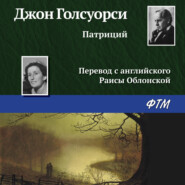По всем вопросам обращайтесь на: info@litportal.ru
(©) 2003-2024.
✖
Beyond
Настройки чтения
Размер шрифта
Высота строк
Поля
They went indoors, to try over the music of the two dances; and soon after Daphne Wing departed, full of sugar-plums and hope.
She arrived punctually at eight o’clock next Sunday, carrying an exiguous green linen bag, which contained her dresses. She was subdued, and, now that it had come to the point, evidently a little scared. Lobster salad, hock, and peaches restored her courage. She ate heartily. It did not apparently matter to her whether she danced full or empty; but she would not smoke.
“It’s bad for the – ” She checked herself.
When they had finished supper, Gyp shut the dogs into the back premises; she had visions of their rending Miss Wing’s draperies, or calves. Then they went into the drawing-room, not lighting up, that they might tell when the moonlight was strong enough outside. Though it was the last night of August, the heat was as great as ever – a deep, unstirring warmth; the climbing moon shot as yet but a thin shaft here and there through the heavy foliage. They talked in low voices, unconsciously playing up to the nature of the escapade. As the moon drew up, they stole out across the garden to the music-room. Gyp lighted the candles.
“Can you manage?”
Miss Daphne had already shed half her garments.
“Oh, I’m so excited, Mrs. Fiorsen! I do hope I shall dance well.”
Gyp stole back to the house; it being Sunday evening, the servants had been easily disposed of. She sat down at the piano, turning her eyes toward the garden. A blurred white shape flitted suddenly across the darkness at the far end and became motionless, as it might be a white-flowering bush under the trees. Miss Daphne had come out, and was waiting for the moon. Gyp began to play. She pitched on a little Sicilian pastorale that the herdsmen play on their pipes coming down from the hills, softly, from very far, rising, rising, swelling to full cadence, and failing, failing away again to nothing. The moon rose over the trees; its light flooded the face of the house, down on to the grass, and spread slowly back toward where the girl stood waiting. It caught the border of sunflowers along the garden wall with a stroke of magical, unearthly colour – gold that was not gold.
Gyp began to play the dance. The pale blurr in the darkness stirred. The moonlight fell on the girl now, standing with arms spread, holding out her drapery – a white, winged statue. Then, like a gigantic moth she fluttered forth, blanched and noiseless flew over the grass, spun and hovered. The moonlight etched out the shape of her head, painted her hair with pallid gold. In the silence, with that unearthly gleam of colour along the sunflowers and on the girl’s head, it was as if a spirit had dropped into the garden and was fluttering to and fro, unable to get out.
A voice behind Gyp said: “My God! What’s this? An angel?”
Fiorsen was standing hall-way in the darkened room staring out into the garden, where the girl had halted, transfixed before the window, her eyes as round as saucers, her mouth open, her limbs rigid with interest and affright. Suddenly she turned and, gathering her garment, fled, her limbs gleaming in the moonlight.
And Gyp sat looking up at the apparition of her husband. She could just see his eyes straining after that flying nymph. Miss Daphne’s faun! Why, even his ears were pointed! Had she never noticed before, how like a faun he was? Yes – on her wedding-night! And she said quietly:
“Daphne Wing was rehearsing her new dance. So you’re back! Why didn’t you let me know? Are you all right – you look splendid!”
Fiorsen bent down and clutched her by the shoulders.
“My Gyp! Kiss me!”
But even while his lips were pressed on hers, she felt rather than saw his eyes straying to the garden, and thought, “He would like to be kissing that girl!”
The moment he had gone to get his things from the cab, she slipped out to the music-room.
Miss Daphne was dressed, and stuffing her garments into the green linen bag. She looked up, and said piteously:
“Oh! Does he mind? It’s awful, isn’t it?”
Gyp strangled her desire to laugh.
“It’s for you to mind.”
“Oh, I don’t, if you don’t! How did you like the dance?”
“Lovely! When you’re ready – come along!”
“Oh, I think I’d rather go home, please! It must seem so funny!”
“Would you like to go by this back way into the lane? You turn to the right, into the road.”
“Oh, yes; please. It would have been better if he could have seen the dance properly, wouldn’t it? What will he think?”
Gyp smiled, and opened the door into the lane. When she returned, Fiorsen was at the window, gazing out. Was it for her or for that flying nymph?
IX
September and October passed. There were more concerts, not very well attended. Fiorsen’s novelty had worn off, nor had his playing sweetness and sentiment enough for the big Public. There was also a financial crisis. It did not seem to Gyp to matter. Everything seemed remote and unreal in the shadow of her coming time. Unlike most mothers to be, she made no garments, no preparations of any kind. Why make what might never be needed? She played for Fiorsen a great deal, for herself not at all, read many books – poetry, novels, biographies – taking them in at the moment, and forgetting them at once, as one does with books read just to distract the mind. Winton and Aunt Rosamund, by tacit agreement, came on alternate afternoons. And Winton, almost as much under that shadow as Gyp herself, would take the evening train after leaving her, and spend the next day racing or cub-hunting, returning the morning of the day after to pay his next visit. He had no dread just then like that of an unoccupied day face to face with anxiety.
Betty, who had been present at Gyp’s birth, was in a queer state. The obvious desirability of such events to one of motherly type defrauded by fate of children was terribly impinged on by that old memory, and a solicitude for her “pretty” far exceeding what she would have had for a daughter of her own. What a peony regards as a natural happening to a peony, she watches with awe when it happens to the lily. That other single lady of a certain age, Aunt Rosamund, the very antithesis to Betty – a long, thin nose and a mere button, a sense of divine rights and no sense of rights at all, a drawl and a comforting wheeze, length and circumference, decision and the curtsey to providence, humour and none, dyspepsia, and the digestion of an ostrich, with other oppositions – Aunt Rosamund was also uneasy, as only one could be who disapproved heartily of uneasiness, and habitually joked and drawled it into retirement.
But of all those round Gyp, Fiorsen gave the most interesting display. He had not even an elementary notion of disguising his state of mind. And his state of mind was weirdly, wistfully primitive. He wanted Gyp as she had been. The thought that she might never become herself again terrified him so at times that he was forced to drink brandy, and come home only a little less far gone than that first time. Gyp had often to help him go to bed. On two or three occasions, he suffered so that he was out all night. To account for this, she devised the formula of a room at Count Rosek’s, where he slept when music kept him late, so as not to disturb her. Whether the servants believed her or not, she never knew. Nor did she ever ask him where he went – too proud, and not feeling that she had the right.
Deeply conscious of the unaesthetic nature of her condition, she was convinced that she could no longer be attractive to one so easily upset in his nerves, so intolerant of ugliness. As to deeper feelings about her – had he any? He certainly never gave anything up, or sacrificed himself in any way. If she had loved, she felt she would want to give up everything to the loved one; but then – she would never love! And yet he seemed frightened about her. It was puzzling! But perhaps she would not be puzzled much longer about that or anything; for she often had the feeling that she would die. How could she be going to live, grudging her fate? What would give her strength to go through with it? And, at times, she felt as if she would be glad to die. Life had defrauded her, or she had defrauded herself of life. Was it really only a year since that glorious day’s hunting when Dad and she, and the young man with the clear eyes and the irrepressible smile, had slipped away with the hounds ahead of all the field – the fatal day Fiorsen descended from the clouds and asked for her? An overwhelming longing for Mildenham came on her, to get away there with her father and Betty.
She went at the beginning of November.
Over her departure, Fiorsen behaved like a tired child that will not go to bed. He could not bear to be away from her, and so forth; but when she had gone, he spent a furious bohemian evening. At about five, he woke with “an awful cold feeling in my heart,” as he wrote to Gyp next day – “an awful feeling, my Gyp; I walked up and down for hours” (in reality, half an hour at most). “How shall I bear to be away from you at this time? I feel lost.” Next day, he found himself in Paris with Rosek. “I could not stand,” he wrote, “the sight of the streets, of the garden, of our room. When I come back I shall stay with Rosek. Nearer to the day I will come; I must come to you.” But Gyp, when she read the letter, said to Winton: “Dad, when it comes, don’t send for him. I don’t want him here.”
With those letters of his, she buried the last remnants of her feeling that somewhere in him there must be something as fine and beautiful as the sounds he made with his violin. And yet she felt those letters genuine in a way, pathetic, and with real feeling of a sort.
From the moment she reached Mildenham, she began to lose that hopelessness about herself; and, for the first time, had the sensation of wanting to live in the new life within her. She first felt it, going into her old nursery, where everything was the same as it had been when she first saw it, a child of eight; there was her old red doll’s house, the whole side of which opened to display the various floors; the worn Venetian blinds, the rattle of whose fall had sounded in her ears so many hundred times; the high fender, near which she had lain so often on the floor, her chin on her hands, reading Grimm, or “Alice in Wonderland,” or histories of England. Here, too, perhaps this new child would live amongst the old familiars. And the whim seized her to face her hour in her old nursery, not in the room where she had slept as a girl. She would not like the daintiness of that room deflowered. Let it stay the room of her girlhood. But in the nursery – there was safety, comfort! And when she had been at Mildenham a week, she made Betty change her over.
No one in that house was half so calm to look at in those days as Gyp. Betty was not guiltless of sitting on the stairs and crying at odd moments. Mrs. Markey had never made such bad soups. Markey so far forgot himself as frequently to talk. Winton lamed a horse trying an impossible jump that he might get home the quicker, and, once back, was like an unquiet spirit. If Gyp were in the room, he would make the pretence of wanting to warm his feet or hand, just to stroke her shoulder as he went back to his chair. His voice, so measured and dry, had a ring in it, that too plainly disclosed the anxiety of his heart. Gyp, always sensitive to atmosphere, felt cradled in all the love about her. Wonderful that they should all care so much! What had she done for anyone, that people should be so sweet – he especially, whom she had so grievously distressed by her wretched marriage? She would sit staring into the fire with her wide, dark eyes, unblinking as an owl’s at night – wondering what she could do to make up to her father, whom already once she had nearly killed by coming into life. And she began to practise the bearing of the coming pain, trying to project herself into this unknown suffering, so that it should not surprise from her cries and contortions.
She had one dream, over and over again, of sinking and sinking into a feather bed, growing hotter and more deeply walled in by that which had no stay in it, yet through which her body could not fall and reach anything more solid. Once, after this dream, she got up and spent the rest of the night wrapped in a blanket and the eider-down, on the old sofa, where, as a child, they had made her lie flat on her back from twelve to one every day. Betty was aghast at finding her there asleep in the morning. Gyp’s face was so like the child-face she had seen lying there in the old days, that she bundled out of the room and cried bitterly into the cup of tea. It did her good. Going back with the tea, she scolded her “pretty” for sleeping out there, with the fire out, too!
But Gyp only said:
“Betty, darling, the tea’s awfully cold! Please get me some more!”
X
From the day of the nurse’s arrival, Winton gave up hunting. He could not bring himself to be out of doors for more than half an hour at a time. Distrust of doctors did not prevent him having ten minutes every morning with the old practitioner who had treated Gyp for mumps, measles, and the other blessings of childhood. The old fellow – his name was Rivershaw – was a most peculiar survival. He smelled of mackintosh, had round purplish cheeks, a rim of hair which people said he dyed, and bulging grey eyes slightly bloodshot. He was short in body and wind, drank port wine, was suspected of taking snuff, read The Times, spoke always in a husky voice, and used a very small brougham with a very old black horse. But he had a certain low cunning, which had defeated many ailments, and his reputation for assisting people into the world stood extremely high. Every morning punctually at twelve, the crunch of his little brougham’s wheels would be heard. Winton would get up, and, taking a deep breath, cross the hall to the dining-room, extract from a sideboard a decanter of port, a biscuit-canister, and one glass. He would then stand with his eyes fixed on the door, till, in due time, the doctor would appear, and he could say:
“Well, doctor? How is she?”
“Nicely; quite nicely.”
“Nothing to make one anxious?”
The doctor, puffing out his cheeks, with eyes straying to the decanter, would murmur:
“Cardiac condition, capital – a little – um – not to matter. Taking its course. These things!”
And Winton, with another deep breath, would say:
“Glass of port, doctor?”
An expression of surprise would pass over the doctor’s face.

















